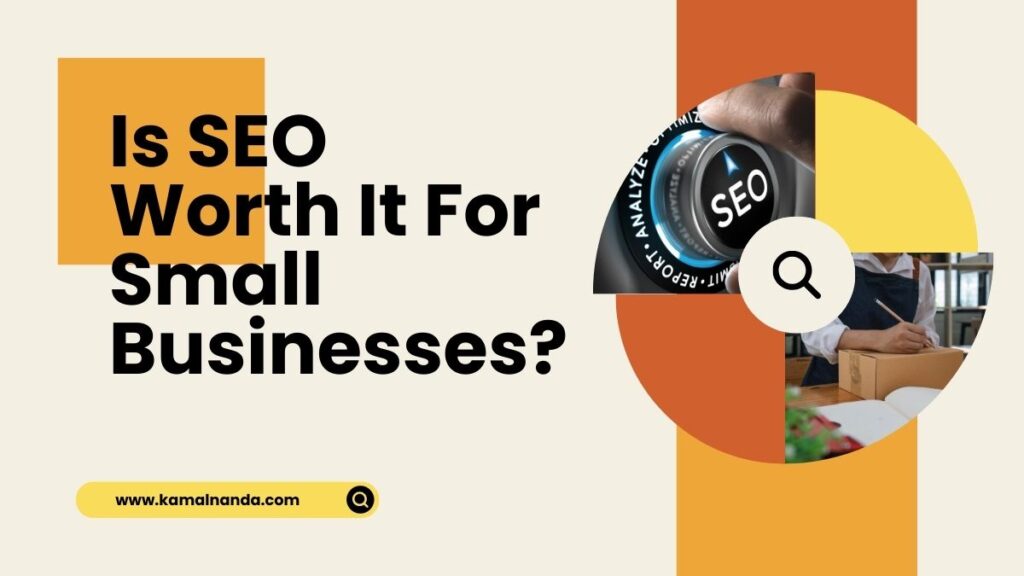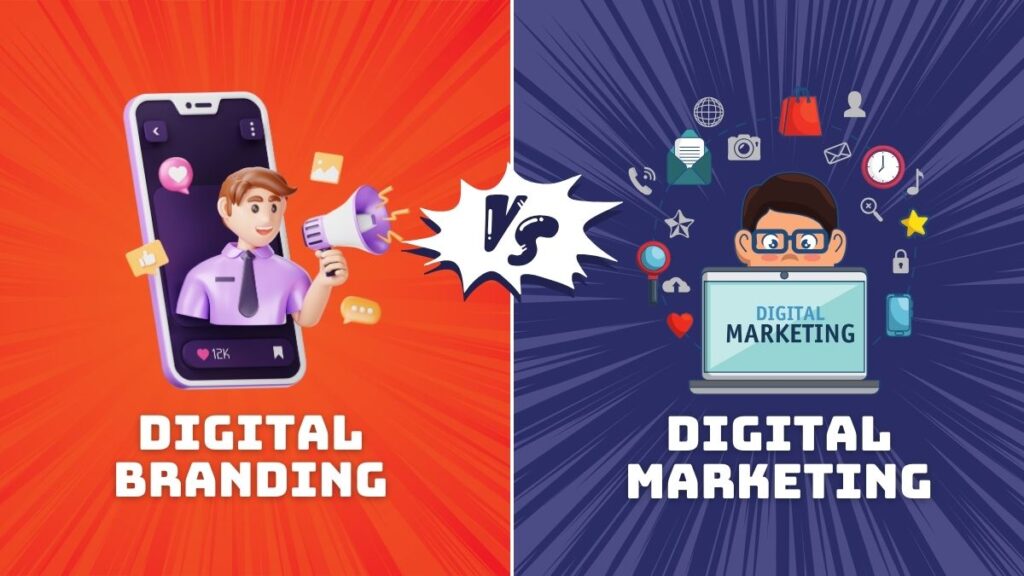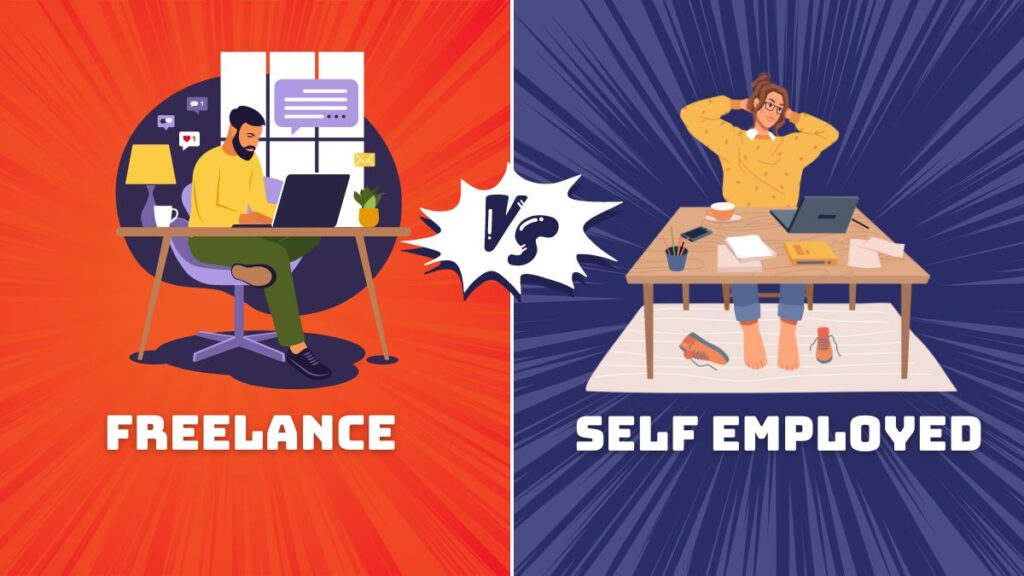Wondering if is SEO worth if for small business? Discover how SEO can help you attract more customers, improve visibility, and grow your business—all without breaking the bank!
The world is rapidly changing and it is becoming more important stay updated with the trends and technologies. Therefore you can’t rely only on traditional business ways, especially for small businesses. But in today’s digital age, having a solid online presence is like having a storefront in the heart of the city.
But do you think that it is a piece of cake? Not really, standing out in the crowd is quite hard even if you are dealing completely online. So what would be the solution to this problem, is it impossible? The short answer is no, SEO comes in to tackle this problem.
It is just like a GPS guide for your potential customers to find out the business. In other words, it helps you to rank higher on search engines like Google, Bing, or any regional search engines.
But still, there are hundreds of small business owners who keep asking— is SEO worth it for small businesses?
The answer is yes.
A recent study shows that 93% of online experiences begin with a search engine, and 75% of users never scroll past the first page of results.
It means that you can’t ignore SEO by just creating a business website and waiting for Google to rank it. For this, you need to invest quite a lot in SEO.
If you don’t have any idea about how SEO can be worth for your business then I am here to debunk all your myths and let you know the actual worth of SEO for your long-term business growth, let’s get started:
Challenges for Small Businesses in the Digital Age
Small businesses face big challenges in the digital world—standing out, competing, and growing. Let’s take a look at how to tackle them!
| Challenge | What It Means |
|---|---|
| Standing Out Online | Competing with bigger companies to be seen online. |
| Limited Budgets | Smaller marketing budgets make advertising harder. |
| Keeping Up With Trends | It’s hard to stay relevant as online trends and technology change quickly. |
| Building Customer Trust | Gaining trust takes time, especially when there are many well-known brands. |
| Managing Online Reviews | Negative reviews or no reviews can hurt your business’s credibility. |
| Reaching the Right Audience | It’s tricky to find the right customers without wasting money. |
| Time Management | Balancing daily work and the needs of online marketing can be tough. |
| Technical Know-How | Understanding how to use websites, SEO, and social media can be confusing. |
| Competing with Paid Ads | Larger companies take up more ad space, pushing small businesses down. |
| Measuring Results | It’s important to track what’s working and what’s not in your marketing. |
These challenges highlight the need for effective strategies, like SEO, to help small businesses grow in a digital world.
Is SEO Worth it for Small Businesses?
Is SEO worth it for small businesses? Absolutely! It helps you show up online, attract more customers, and grow your business—all without breaking the bank. Let’s explore why SEO is a smart investment for your business!
Improved Online Visibility
Imagine your business as a store on a crowded street. Without SEO, it’s like being tucked away in an alley no one knows about. SEO puts you on the main street, where everyone can see you.
Real-Life Example: A small bakery in Boston optimized its website for keywords like “best cupcakes in Boston.” Within months, they climbed to the top of search results and gained 25% more foot traffic.
Pro Tip: Use location-specific keywords, like your city or neighborhood, to appear in local searches. Tools like Google Keyword Planner can help you find the right ones.
Attracting the Right Customers
SEO doesn’t just bring more visitors—it brings the right visitors. These are people already searching for what you offer.
Real-Life Example: A yoga studio started a blog with tips on “yoga for back pain relief.” Their post ranked high on Google, attracting readers who later signed up for classes.
Pro Tip: Create blog posts or pages that answer common questions your customers have. This makes your website valuable and searchable.
Cost-Effective Marketing
SEO is like planting seeds. It takes time, but once it grows, it pays off consistently without the ongoing costs of ads.
Real-Life Example: A local florist used to spend $600 monthly on Facebook ads but switched to SEO-focused blog content. Within six months, they saved money and saw a 40% increase in organic traffic.
Pro Tip: Start with affordable tools like Ubersuggest to track your progress and improve without breaking the bank.
Building Trust and Credibility
Being on the first page of Google signals to people that your business is trustworthy and reliable.
Real-Life Example: A handyman service optimized their website and began showing up for “best handyman near me.” Their online bookings doubled because people trusted their top ranking.
Pro Tip: Collect positive reviews on platforms like Google My Business. Good reviews improve your search ranking and build trust.
Reaching Local Customers
If you run a local business, SEO ensures your name pops up when someone nearby searches for your services.
Real-Life Example: A pizza restaurant claimed their Google My Business listing and optimized for “pizza delivery near me.” Within weeks, their orders spiked by 30%.
Pro Tip: Always update your Google My Business profile with current hours, location, and photos to attract local customers.
Better Customer Experience
SEO forces you to improve your website, making it faster, mobile-friendly, and easy to navigate—all things customers love.
Real-Life Example: A gift shop reduced its website’s loading time from 5 seconds to 2 seconds. Sales increased by 20% because visitors stayed longer and bought more.
Pro Tip: Use tools like GTmetrix to check your website speed and fix any issues slowing it down.
Standing Out from the Competition
SEO levels the playing field, letting you compete with bigger brands by targeting specific keywords.
Real-Life Example: A family-owned coffee shop optimized for “best coffee shop near [city name]” and outranked a popular chain in their area, drawing in more local customers.
Pro Tip: Focus on niche keywords. For example, instead of “coffee shop,” try “vegan-friendly coffee shop in [city].”
Long-Term Benefits
Unlike paid ads that stop working the moment you stop paying, SEO delivers lasting results that can grow over time.
Real-Life Example: A small photography studio wrote a blog about “top 10 wedding photo tips” two years ago. That post still brings 5,000 monthly visitors today.
Pro Tip: Refresh old content regularly by adding updated information or new keywords to keep it ranking high.
Boosting Revenue
SEO doesn’t just attract visitors—it helps turn them into paying customers by targeting their specific needs.
Real-Life Example: A small furniture shop optimized their site for “affordable sofas online” and doubled their online sales in six months.
Pro Tip: Add clear call-to-action buttons like “Shop Now” or “Book a Consultation” to guide visitors toward making a purchase.
Adapting to Trends
Why It Matters: SEO is flexible. You can tweak your strategy as your business grows or market trends shift.
Real-Life Example: A fitness coach initially targeted “at-home workouts” during the pandemic. As gyms reopened, they shifted to “gym training tips,” keeping their traffic strong.
Pro Tip: Stay updated on search trends with free tools like Google Trends to adjust your keywords and content strategy.
SEO is more than just a buzzword—it’s a powerful tool that can help small businesses thrive in today’s digital landscape. Whether you’re a local bakery, a yoga studio, or a handyman service, investing in SEO is like planting seeds for long-term growth.
With improved visibility, targeted traffic, and lasting benefits, SEO is undoubtedly worth it for small businesses. Start small, stay consistent, and watch your business climb the ranks—literally and figuratively!
Common SEO Myths Debunked
Think SEO is too complicated or expensive? Think again! Let’s bust some of the most common SEO myths and set the record straight!
SEO is only about keywords
Keywords are important, but SEO involves more. It’s about making your website fast, easy to use, mobile-friendly, and having great content. Things like link building and improving your site’s structure matter too.
You need to be on the first page to get traffic
You don’t have to be #1 to get traffic. Google’s “featured snippets” and “People Also Ask” sections can bring traffic even if you’re not at the top. Quality content and good SEO help you show up in different search results.
SEO is a one-time thing
SEO isn’t something you do once and forget. You need to update your site regularly and keep improving to stay ahead. Google changes its rules, so you need to keep up with new updates to maintain your ranking.
More content always means better SEO
It’s not about posting tons of content. It’s about posting good content. Focus on quality, not quantity. Make sure your content answers questions, provides value, and connects with your audience.
How to Implement SEO for Small Businesses?
Ready to improve your online presence? Here’s a simple guide on how to implement SEO for your small business and start seeing results!
Do Keyword Research
Use tools like Google Keyword Planner to find what your customers are searching for. Focus on long phrases (long-tail keywords) that are easier to rank for and more specific to your business.
Optimize Your Website
Title Tags & Meta Descriptions: Make sure your keywords appear in your title and description to help search engines understand your site.
Content: Write helpful, easy-to-read content with your keywords included naturally.
Mobile-Friendly: Ensure your website looks good and works well on phones.
Fast Website: A quick-loading site is important for both users and search engines.
Create Quality Content
Write blog posts or guides that answer questions your customers have. Good, helpful content is key to ranking well.
Focus on Local SEO
Claim your Google My Business listing.
Make sure your business name, address, and phone number are consistent everywhere online.
Get reviews from your customers to build trust.
Build Backlinks
Try to get other websites to link to your site. You can reach out to similar businesses or write guest posts to get more links.
Track Your Progress
Use Google Analytics to see how your site is doing. Keep an eye on which keywords are working and update your strategy as needed.
These steps can help your small business get found online and grow!
Common Questions to Answer
Got questions? We’ve got answers! Here are the most common questions about SEO for small businesses and how you can use them to your advantage
How Much Should SEO Cost for a Small Business?
SEO can cost anywhere from $500 to $2,000 a month, depending on what you need. If you want to save money, you can use affordable tools and do it yourself.
Is Paying Someone to Do SEO Worth It?
Yes, paying an expert can be worth it if you don’t have the time or knowledge. An SEO pro can help you get more traffic and save you time, so you can focus on running your business.
Is SEO Worth It Anymore?
Yes! SEO is still very useful. It helps bring long-term traffic to your site, and even though Google changes things up, it’s still one of the best ways to get noticed online.
Why SEO is Important for Small Businesses
SEO helps small businesses get found online. When your site ranks higher on search engines, more people will see it and visit, which can lead to more customers.
Is SEO Worth It for Small Businesses Reddit?
Lots of small business owners on Reddit say SEO is definitely worth it, especially for local businesses. While it takes time, it can bring steady traffic and customers if you stay consistent. Many suggest combining SEO with other marketing methods for the best results.
Best Small Business SEO Tools
Looking to boost your small business online? The right SEO tools can make all the difference—check out the best ones to help you grow and succeed!
| Tool | Key Features | Best For |
|---|---|---|
| Google Analytics | Free and easy to use. Track website traffic and see what’s working. | Anyone looking to monitor website performance. |
| Yoast SEO (for WordPress) | Helps optimize content, titles, and meta descriptions. | Beginners using WordPress. |
| Ubersuggest | Affordable tool for keyword research, site audits, and competitor analysis. | Small businesses on a budget. |
| SEMrush | Tools for keyword research, backlink analysis, and site audits. | Businesses needing detailed SEO insights. |
| Moz | Easy to use for keyword research, link-building, and site audits. | Businesses wanting to improve their SEO. |
| Google Search Console | Free tool from Google. Monitor site performance, find keywords, and fix issues. | Anyone using Google to optimize their website. |
| Ahrefs | Powerful tool for keyword research, backlink tracking, and competitor analysis. | Businesses looking for deep SEO insights. |
| SpyFu | Research competitors’ keywords and find new keyword ideas. | Businesses wanting to stay ahead of the competition. |
These tools will help small businesses boost their SEO and grow their online presence!
How I Can Help You?
I can help you in many ways, with clear strategies and real-world examples. Here’s how:
Business Consulting
I help you grow your business by looking at how your company works and finding ways to make it more efficient and profitable. He gives you practical advice to improve your operations and boost your sales.
Case Study: I helped a small clothing store increase its sales by 20%. He suggested improvements to their loyalty program and supply chain, which led to more customers and smoother operations.
SEO and Digital Marketing
I can improve your website’s ranking on Google, bringing in more visitors for free. He also helps with digital marketing like content creation and social media, so you can reach more potential customers.
Case Study: I helped an e-commerce business improve its Google rankings, moving from page 10 to page 1 for important keywords. This resulted in a 40% increase in visitors and a 30% increase in sales in just three months.
Strategy Development
I work with you to create clear plans for growing your business, whether it’s increasing sales or building your brand. He helps you set goals and make a roadmap to achieve them.
Case Study: I helped a startup expand beyond its local market. By focusing on social media and content marketing, the startup doubled its customer base and gained recognition across the country.
Personalized Solutions
I offer tailored solutions for your specific challenges, whether it’s attracting customers, improving your website, or standing out in the market.
Case Study: I helped a food delivery service stand out by rebranding, improving its website, and running local SEO campaigns. This led to a 50% increase in orders in a short time.
Training and Guidance
I also provides training for you or your team, teaching you important skills in SEO, marketing, and business management. He makes sure you can apply what you learn right away.
Case Study: I held SEO workshops for a marketing agency, helping the team improve client websites. This led to higher search rankings and better client results, increasing customer satisfaction by 25%.
Business Growth & Scaling
I help you grow your business smoothly. He introduces systems to handle more customers and helps you find new ways to make money without losing quality or customer satisfaction.
Case Study: I helped a tech company scale by automating customer service and adding new products. This made it easier to manage more customers and increased their revenue by 35%.
Why Choose Me?
I am here to help you take your business to the next level. With practical advice, real-world solutions, and a focus on what works, I can guide you through the steps to success. Whether you need help with marketing, strategy, or growth, I provide clear advice and the support you need.
Final Verdict
Yes, SEO is definitely worth it for small businesses! It helps your website show up when people search for what you offer, bringing in more visitors and potential customers. Plus, it’s a budget-friendly way to grow your business in the long run.
Key Takeaways
SEO drives free traffic to your website.
It helps your business stand out without spending a lot on ads.
SEO is a long-term strategy that builds trust and visibility.
Actionable Tips
Find the right keywords: Use words your customers are searching for on your site.
Make your website fast and easy to use: This keeps visitors happy and coming back.
Claim your local business listing: This helps you show up in local searches.
Post helpful content regularly: Blogs or reviews can improve your site’s ranking.
SEO takes time, but it’s a smart way to grow your business. Start today—it’s worth it!


